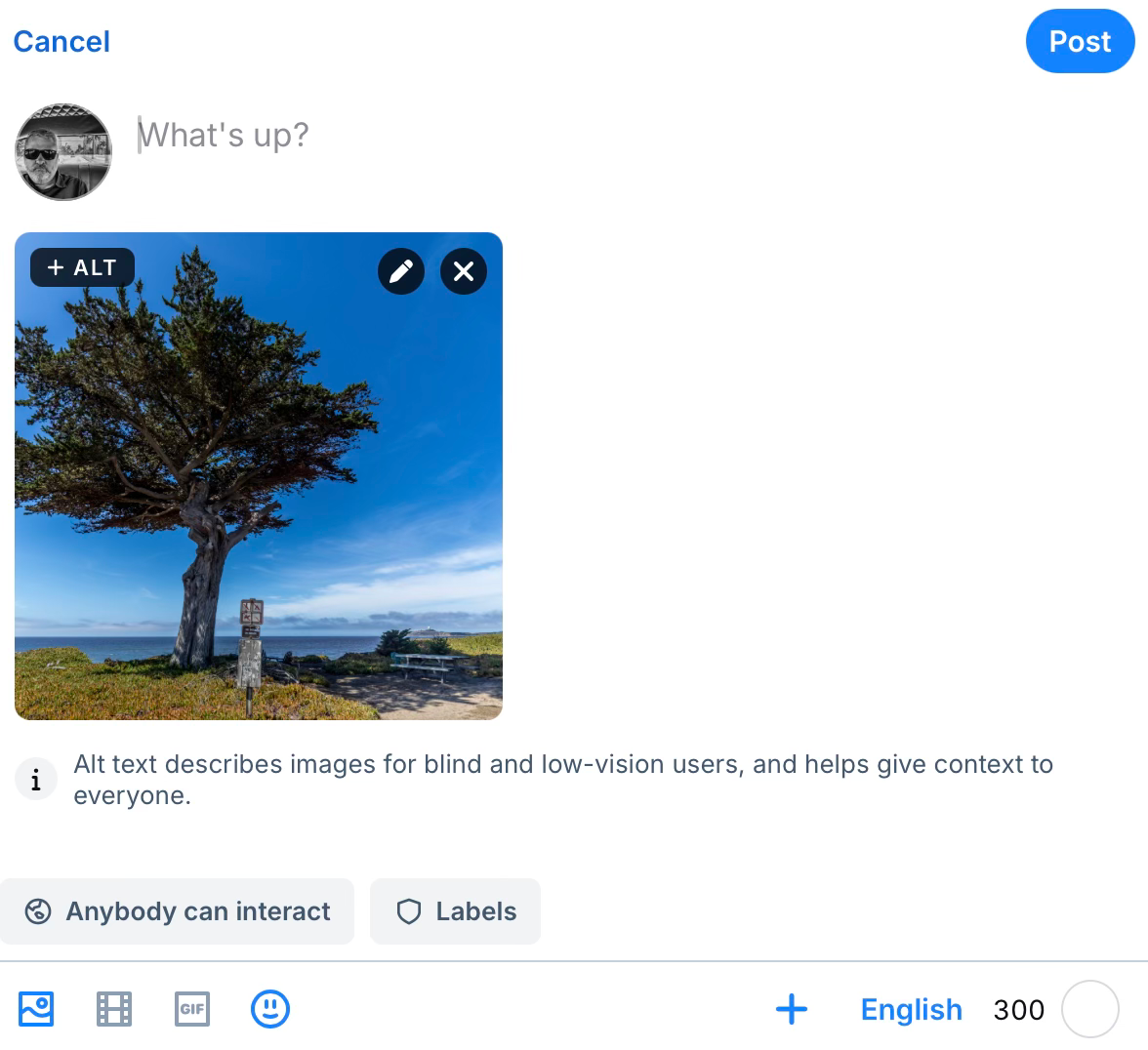Breaking Free from Algorithmic Dictatorship in Social Media: Why Bluesky Matters
Putting Control Back in Users’ Hands
Of late as I’ve scrolled through my feeds on Twitter/X and Threads, the engagement I had been used to in the past has greatly dissipated. The content that fills my feed is dictated by unseen forces, tailored not to my interests but to a corporate agenda lurking behind opaque algorithms.
I've missed the days when social media felt more organic—a place for genuine interactions, spontaneous discoveries, and meaningful discussions. That's why discovering Bluesky has been such a refreshing experience.
Breaking Free from the Algorithmic Tyranny
One of the things that has increasingly bothered me about platforms like Twitter/X and Threads is the lack of control over what I see. The algorithms decide which posts appear on my feed, often prioritizing content that boosts engagement metrics for corporate agendas rather than enriching my experience. This closed-loop system can make it difficult to find the kind of content and conversations I actually care about. The signal to noise ratio has become greatly out of balance. Too little signal, too much noise.
Bluesky inverts this. As a Social Benefit Corporation, their goal is to put control back into the hands of its users. Instead of relying on an opaque algorithm to curate our feeds, Bluesky allows us to select various ways to view feeds. Want to see the latest posts sequentially from those you follow in real-time? Go for it. Prefer to filter your feed based on specific topics or hashtags? You can do that too. Want to see a feed based on your interests to discover new users? It’s right there. It's liberating to have the power to shape my own social media experience.
A Community Where Engagement Feels Genuine
Remember when social media was organic and about connecting with others over shared interests, rather than just chasing likes and retweets or conflict to drive engagement? Organic is the vibe I get on Bluesky. It feels reminiscent of the early days of Twitter, when there was an eagerness to share useful information and engage in thoughtful discussions.
The community on Bluesky is vibrant and welcoming. Conversations feel organic, and there's a genuine sense of shared curiosity. It's the kind of space where you can dive into deep discussions or simply enjoy the exchange of ideas without the noise and distraction that often plagues larger corporate agenda based platforms.
Taking Control of Your Social Media Experience
Bluesky also offers robust tools for composable interactions. Traditional trolls and unwanted content can be a headache on any platform, but with Bluesky's granular and macro-level blocking features, you have the ability to curate your experience to your liking. Whether it's muting specific users or filtering out certain types of content, the control is at your fingertips with tools focused on anti-toxicity.
Embracing Openness with an Open Protocol
One of the aspects that truly sets Bluesky apart is its commitment to openness. By providing an open protocol with the goal of open federation, Bluesky is laying the groundwork for a more decentralized and user-driven social media landscape. This means that, in the future, different platforms could interact seamlessly, giving users even more control and flexibility.
A Better Way to Verify Identity
Another feature that sets Bluesky apart is its innovative approach to identity verification. Instead of relying on traditional methods controlled by a central authority—or charging users for a verification badge (like the now useless Blue Check)—Bluesky enables you to verify your identity through domain handles linked to a domain you own. For example, instead of having a handle like @username.bsky.social, you can have something like @yourname.com.
This means your identity is tied directly to a domain you control, giving you greater ownership and authenticity. It’s a decentralized and cost-free way to establish trust with your followers. It’s how you know the Financial Times *IS* the Financial Times. By linking your online presence to a domain you own, you reduce dependency on the platform for verification, and it’s harder for imposters to replicate your identity.
Prioritizing Accessibility
Another commendable feature of Bluesky is how it encourages users to provide alt text for images. This might seem like a small addition, but it's a big step toward making the platform more inclusive and accessible to everyone.
Alt text, or alternative text, is a written description of an image that helps people with visual impairments understand what's being displayed. Screen readers use alt text to convey the content of images to those who can't see them. By prompting users to add alt text when uploading images, Bluesky ensures that no one is left out of the conversation.
Online, where visual content is king, it's easy to overlook the importance of accessibility. Bluesky's commitment to this shows a level of consideration and community-mindedness that's refreshing. It's about creating social media a place where everyone can engage fully.
Why Not Mastodon?
You might be thinking, "Isn't that what Mastodon is trying to do?" While Mastodon also champions decentralization and user control, in my experience, it can feel a bit too fragmented, cliquish, and complex. The multitude of servers and communities can make it challenging to find your community, and sometimes it lacks the cohesion that fosters widespread engagement. I see the utility for Mastadon, as being able to create your own private social media environment, while being able to federate with other communities by choice, or not at all.
Bluesky, on the other hand, strikes a balance between openness and community. It feels unified without being fragmented, offering the best of both worlds.
Join Me Under Blue Skies
If you've been feeling the same disillusionment with mainstream social media platforms, I invite you to give Bluesky a try. It's refreshing to be part of a platform that prioritizes user control, meaningful engagement, and inclusivity over algorithm-driven content designed to keep us doom scrolling and in conflict rather than connecting.
Let's return to what made social media exciting in the first place: the ability to connect with others, share ideas, and build communities based on genuine interests.
The verge has a great article with more information. Oh and you may follow me here @goecke.net on Bluesky.








